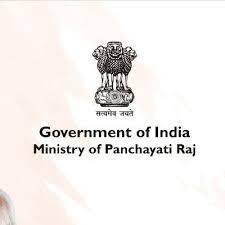CURRENT AFFAIRS
Get the most updated and recent current affair content on Padhaikaro.com
ATMANIRBHAR PANCHAYATS
- RAOS, Jaipur
- 22, Dec 2021

Why in news: Ministry of Panchayati Raj organises a day-long National Webinar with the theme ‘Atmanirbhar Panchayats – Role of Technology, Entrepreneurship and Harnessing Energy in Achieving Self-reliance for Sustainable Development’.
As the Nation is celebrating 75 years of Independence as ‘Azadi Ka Amrit Mahotsav’, the Ministry of Panchayati Raj is undertaking several activities and initiatives to uphold the Prime Minister’s vision of ‘Atmanirbhar Bharat’.
Atmanirbhar Panchayats is an instrument of economic development in rural areas through Rural Technology and Entrepreneurship.
It aims to make Panchayats aware of new technologies which are cost-effective, tested and useful so that their benefits could reach the last mile and Panchayats can become Economic Growth Centres and Demand Centres.
Panchayats can serve as a bridge between the IIT’s Rural Technology Action Group (RuTAG) like institutions and the villages.
About Panchayati Raj Institution (PRI):
It is a system of rural local self-government in India.
PRI was constitutionalized through the 73rd Constitutional Amendment Act, 1992 to build democracy at the grass roots level and was entrusted with the task of rural development in the country.
The Act added Part IX to the Constitution, “The Panchayats”. It contains Article 243 to Article 243 O.
Three-tier system of panchayats at village, intermediate block/taluk/mandal and district levels except in States with population is below 20 lakhs (Article 243B).
Reservation of seats for Scheduled Castes (SCs), Scheduled Tribes (STs) and women were provided across various levels of Panchayats.
Further, the election process in the Panchayati Raj institutions will be held independent of the state government’s will.
Independent Election Commission in each State for superintendence, direction and control of the electoral rolls (Article 243K).
State Finance Commission was established in each state to determine the principles on the basis of which adequate financial resources would be ensured for panchayats and municipalities (Article 243I).
The Act has two parts: compulsory and voluntary. Compulsory provisions must be added to state laws, which includes the creation of the new Panchayati Raj systems. Voluntary provisions, on the other hand, is the discretion of the state government.
The Act is a very significant step in creating democratic institutions at the grassroots level in the country. The Act has transformed the representative democracy into participatory democracy.